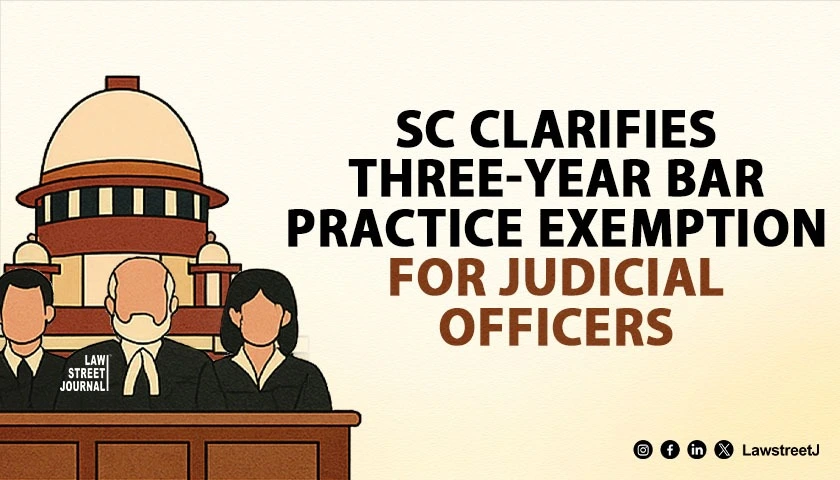New Delhi: The Supreme Court of India has issued a crucial clarification exempting existing Judicial Officers from the mandatory three-year bar practice requirement when applying for judicial services in other states, provided they have completed three years of service in their current position.
The Chief Justice of India, presiding with Justice K. Vinod Chandran, made these observations while hearing applications in the long-running All India Judges Association matter.
The Court was addressing Writ Petition (Civil) No. 1022/1989 filed by the All India Judges Association and others against the Union of India. The clarification arose from applications seeking exemption from the directions issued in the Court’s judgment dated May 20, 2025.
The case involved a peculiar factual situation. The applicant was provisionally enrolled with the Bar Council of Delhi on July 28, 2018. The Court noted:
“Since at the relevant time there was no requirement of prior practice at the Bar, the applicant immediately applied for the post of Civil Judge, Junior Division in the Delhi Judicial Services. Simultaneously, she had also applied for the said post in other State Judicial Services.”
Addressing the applicant’s career progression, the Court observed:
“After being selected in the Madhya Pradesh Judicial Services, she was appointed as a Civil Judge, Entry Level on November 19, 2019. It further appears that the applicant, even thereafter, has been applying for the post of Civil Judge, Junior Division in various other States.”
Explaining the origin of the current application, the Court stated:
“This application is occasioned on account of the directions issued by this Court in the judgment dated 20.05.2025… since vide the said judgment, for applying to the post of Civil Judge, Junior Division, three years’ experience as an advocate has been made mandatory.”
Highlighting the peculiarity of the situation, the Court noted:
“In the present case, though the applicant has been working as a Judicial Officer for six years, she had not completed three years of practice as an advocate, since it was not required at the relevant time.”
Taking a pragmatic approach, the Court held:
“We find that since the applicant has already worked as a Judicial Officer for a period of six years, the said condition would not be applicable to her.”
To avoid future ambiguity, the Court issued a broader clarification:
“In order to remove any ambiguity, we further clarify that in the case of Judicial Officers who were appointed prior to the passing of the judgment dated 20.05.2025… the requirement of three years’ practice at the Bar would not be necessary if they apply for Judicial Services in any other State.”
However, the Court imposed an important condition:
“This is, however, subject to them completing three years’ service in their present State.”
This safeguard ensures that judicial officers gain sufficient experience before seeking lateral movement across states. The clarification protects officers appointed under the earlier regime—when bar practice was not mandatory—from being unfairly disadvantaged.
In related issues, the Court also addressed the absorption and regularization of e-Court Technical Staff across High Courts and Trial Courts. Senior Advocate Mr. Gopal Sankaranarayanan submitted that 14 High Courts have already absorbed or regularized such personnel.
The Court directed all States, Union Territories, and High Courts that have not yet filed their responses to submit affidavits within six weeks. The Registrar was instructed to communicate this order to the Chief Secretaries and Administrators of all States and UTs, as well as the Registrars General of all High Courts.
Case Title: All India Judges Association & Ors. vs. Union of India & Ors.













